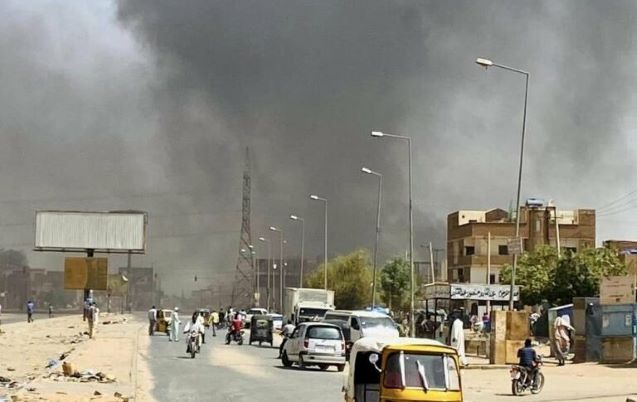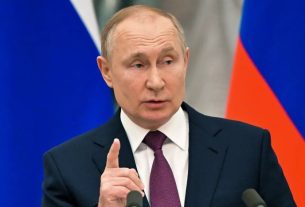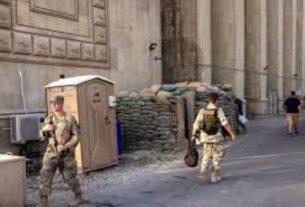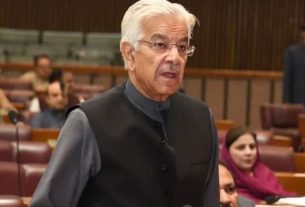The former prime minister of Sudan has warned that the conflict in his country could become worse than those in Syria and Libya.
Abdalla Hamdok said the fighting will be a “nightmare for the world” if it continues.
The latest ceasefire between warring generals is faltering, with airstrikes reported in the capital Khartoum.
Almost two weeks of fighting has left hundreds dead, while tens of thousands of people are fleeing the country.
Thursday night’s extension of an uneasy ceasefire between the rival factions followed intensive diplomatic efforts by neighbouring countries, as well as the US, UK and UN.
But the 72-hour extension has not held. Air, tank and artillery strikes are reported to be continuing in parts of Khartoum.
Speaking at a conference in the Kenyan capital, Nairobi, Mr Hamdok called for a unified international effort to persuade the Sudanese military leader and the head of a rival paramilitary force to hold peace talks.
“This is a huge country, very diverse … I think it will be a nightmare for the world,” he said.
“This is not a war between an army and small rebellion. It is almost like two armies – well trained and well armed.”
Mr Hamdok – who served as prime minister twice between 2019 and 2022 – added that the insecurity could become worse than the civil wars in Syria and Libya. Those wars have led to hundreds of thousands of deaths, created millions of refugees and caused instability in the wider regions.
The fighting in Sudan broke out on 15 April as the result of a bitter power struggle between the regular army and the Rapid Support Forces (RSF).
Army commander Gen Abdel Fattah al-Burhan and RSF chief Gen Mohamed Hamdan Dagalo, better known as Hemedti, disagree about the country’s proposed move to civilian rule, and in particular about the timeframe of the 100,000 strong RSF’s inclusion into the army.
Both factions fear losing power in Sudan, partly because on both sides there are men who could end up at the International Criminal Court for war crimes committed in the Darfur region almost 20 years ago.
Millions of people remain trapped in Khartoum, where there are shortages of food, water and fuel.
Violence is also reported to have been particularly bad in El Geneina, a city in Darfur in western Sudan, with claims that militia groups have looted and torched markets.
Hemedti has told the BBC he will not negotiate until fighting ends.
He said his fighters were being “relentlessly” bombed since the truce was extended.
“We don’t want to destroy Sudan,” he said, blaming army chief Gen Abdel Fattah al-Burhan for the violence.
Gen Burhan – the head of Sudan’s regular army – has tentatively agreed to face-to-face talks in South Sudan.
Meanwhile there are chaotic scenes in Port Sudan where people are desperate to board ships, some of which are heading to Saudi Arabia and Yemen.
The UK government said it was winding up its own evacuation efforts on Saturday evening. It has established a diplomatic presence in Port Sudan, with an office at the coastal city’s Coral Hotel.
Around 2,000 people have arrived in the Saudi coastal city of Jeddah after being evacuated from Port Sudan. Most are expected to be flown home via charter flights arranged by their governments within the next few days.
Speaking to BBC’s Chief International Correspondent Lyse Doucet in Jeddah, Nazli, a 32 year-old Iranian civil engineer who fled with her fellow engineer husband, recalled the fighting they fled.
“We couldn’t even sit on our balcony; the gunfire was everywhere,” she said.
“Please please help our family in Sudan,” cried Rasha, a Sudanese-American mother of four children – who spoke of hiding for three days, terrified.
“I call on the world to protect Sudan,” she pleaded, underlining fears that once all the foreign nationals have fled, the fighting will intensify.__Courtesy BBC.com





